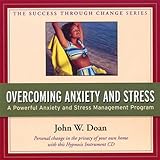How to Help a Teen Get Over Test Anxiety
Signs of test anxiety:
Many people experience anxiety at various times of their lives. When it comes to an important event in which the expectation to succeed is at a higher level than at other times, it can bring out a serious case of worry and anxiety. Examples of this might be: an upcoming interview or even the first day on a new job; the first day of school; a stage play or dance recital; a final sports event. This type of anxiety is associated with 'performance' and the desire not to fail. In this same way some people experience test taking as a measurement of their academic performance and show signs of anxiety with an upcoming test.
When my daughter was in school she was a little social butterfly...that is, until it came to tests. That's when her usual cheerful disposition would disappear and be replaced with irritability. I could usually observe the signs that would foretell of an upcoming test, in her case it was with the subject of math, such as a lack of concentration, a general restlessness, which would also affect her sleep, and a regression to a younger age, with whining, feelings of incompetence and tearfulness. Other signs that would show up might be avoidance and procrastination; changes in appetite and/or sleep; obvious changes in mood.
One of the ways in which I supported my daughter in changing her belief about her incompetence was to point out other ways she was very competent to enable her to disengage from the belief that the test success was 'who she was'. This was a very effective step.
Another thing I did was I told her the story of how Edgar Cayce, The Sleeping Prophet, was a poor student, except when he slept on his books. Then he miraculously recalled things that he had failed to recall in his ordinary consciousness. I explained that there are ways the information comes to us that is heightened when our minds are very relaxed, but which are blocked when we hold on tightly to trying to remember details when we are anxious. I emphasized that the anxiety acted as a wall.
She wanted to try to sleep on her math books and was delighted to come home with a B on her math test. She said her mind was able to absorb the information like Edgar Cayce, however, I felt it was more from her already knowing the material and allowing her mind to relax to let it in. Whichever it was, it worked for her.
Physical and Emotional Signs of Anxiety
Physical
| Emotional
| Solution
|
|---|---|---|
sweating
| caused by increased heart rate; slow breathing down
| |
Negative thinking
| Awareness to stop and think positive thoughts
| |
heart palpitations
| breathe in and out slowly
| |
'What if' thinking
| write or say worse case scenario and examine the logic
| |
tension headache
| massage the temples and back of neck; shoulders Apply a warm cloth; take medication if needed
| |
tearfulness
| relaxation breathing; communication; positive reinforcement from support person
|
Video about College Test Anxiety
What is test anxiety?
Test anxiety is a form of anxiety in which our bodies and minds react to our perceived measurement of how well we will do on a test. The 'performance' we must give is in the field of knowledge and how well we understood the teacher's lessons.
Some people who have a lower level of understanding written questions do better if the question is asked orally. The ability to interpret a question accurately will often make a difference on a written essay, however, on math exams it is all about understanding formulas and numbers.
The projection into the future and the actual taking of the test based on past history is part of the problem of experiencing this anxiety. Not focusing on the 'present' is habit that many people make and thus, they move into anticipatory anxiety...anticipating the worse possible scenario may create an outcome they most feared.
Learning to overcome test anxiety, or anxiety of any type, will enhance test taking and enrich one's life.
Dream big and achieve!

Steps to take when dealing with test anxiety
1. Communicate-get your child to talk about what is concerning him. If he cannot put it in words, but 'blows up', ask him to slow down, breathe, and explain that you want to help him. You are not the enemy; you are there to understand. Be patient-getting a teen to communicate isn't an all or nothing endeavor. It takes time, practice and trust. If your teen does not trust that you will come through with your encouragement and support it is a reliable outcome that he will shut down.
2. Confidentiality-this is not the time to share your child's problem with the neighbor, your girlfriend, or the classmate's mother. If your child decides to share her doubts and struggles with you then respectfully keep her information private. If you are part of a larger family system then by all means explain to your child that her father will be part of the solution and will need to know what the problem is.
3. Support with logic and love-The last thing your teen needs to hear from you is that he is being 'silly' or 'ridiculous'. When that straight A student of yours expresses his fear of failure, don't disrespect his self doubts by minimizing his concerns. Instead, point out steps he has made to meet the expectations of the teacher: "...you've listened in class, you've taken notes, you've studied with a classmate and alone, and you've practiced-those are the facts." Second, point out that no matter how he does on the test you love him because of who he is, not what he does. Kids need to know that they are accepted for themselves, not their achievements.
If your child has not taken the proper steps to prepare, help him do so, or point out that this is a pattern that increases his anxiety and the solution is to make a positive change for future tests.
4. Visualization and Breath work: Teach your child how to visualize herself in a calm manner taking the test and to become aware of tension. Teach some slow breathing to calm her nerves. Tell her to follow a wave on the shore-breathe in slow (count 3-5) wave moves back off shore-exhale (count 3 - 5). Visualize her parents loving arms surrounding her or perhaps feeling your hands on her shoulders as support. Have her practice visualizing receiving a passing grade on her paper and how happy she feels about that.
5. Sleep and Food: Help your child to do what he can prior to the night before the test and teach 'no cramming'. Explain that his mind needs some 'down time' something else for him to focus on besides the test. Encourage him to get a good nights sleep so he feels well rested. Have him eat a high protein breakfast to energize his brain. If he is truly not a breakfast eater ask him to eat something to break the fasting of the night before. If necessary, fix his favorite breakfast as a sign of support and encouragement.
6. Don't chastise the outcome: No matter what the outcome, don't chastise your teen for not doing well, or not following your suggestions. Teens will often experience failure a few times until they decide its not worth repeating. Again, be patient and supportive. If there is ANY sign of improvement offer positive feedback. If not, offer a gentle reminder.
Practice these techniques until they become second nature.
Techniques of overcoming test anxiety

Please take this Poll:
Do you have a teen who suffers from test anxiety?
Role Modeling
As far as emotional mapping, how does your child compare to you? Do you ever examine your own level of anxiety? Could your child be mimicking the behavior that you've role modeled for her?
I had to look at this problem on a personal level when my oldest daughter was only six. As I watched a television talk show about the subject of inherited anxiety it struck a cord. It was just following my divorce and I was nervous about everything, "Was I going to be okay raising two young children by myself? Was I going to be able to find a job to support them, etc." Actually, the worry came more as a form of, "HOW?" How was I going to build a new life for them and myself when I was so full of uncertainty. I knew my daughter was experiencing a lot of emotional fears and anxieties, but until I watched that program I had no idea how strongly my behavior was influencing her.
It was one of those life changing moments of an opportunity to make a difference in my daughter's life, and thus, a difference in my own life as well. It was information I kept close at hand when I saw her experience little regressions or melt downs.
One of the key moments that stand out for me was when she came home with a B on a paper in first grade. Tearfully she showed me the "horrible" paper she brought home. I was shocked. I had to show her by example how unimportant it was to get an A. After reassuring her and hugging her I made up my mind to bring home my worse paper from a college course I was taking and 'rejoice' over it.
Later that week I received a C on a trigonometry test and when she came home from school that day I shared with her how excited I was about my test grade. She was obviously confused and questioned why I was happy about that. I gave her much to think about when I explained to her how hard the class was and how I had tried my best so I knew that was just fine.
She was always a studious child who took school seriously, but that particular lesson lightened the load for her and she was able to relax about her perfectionism in our home.
My studious daughter










